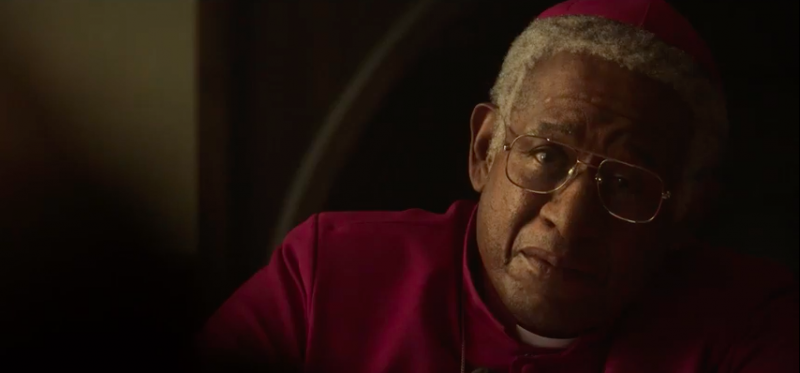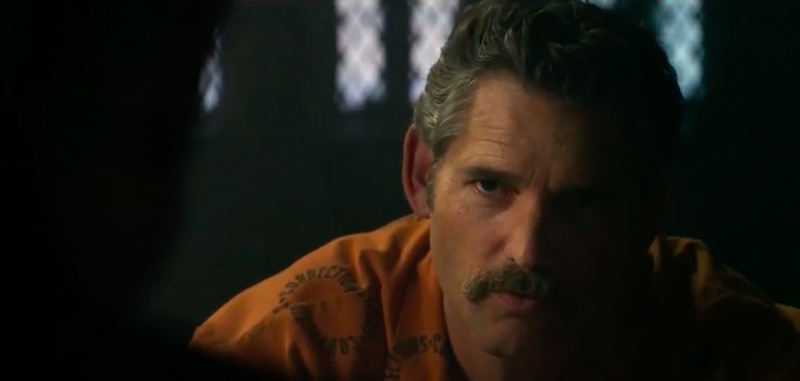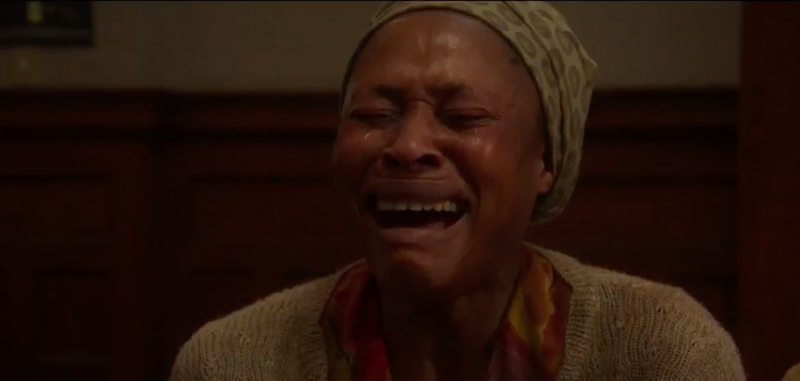Based on true events, Roland Joffé’s The Forgiven stars the brilliantly mutable Forest Whittaker as Archbishop Desmond Tutu, as he meets with unapologetic murderer Piet Blomfeld (Eric Bana) in the aftermath of apartheid.
The film captures the fragility of the peace brought about by Nelson Mandela and raises deep questions regarding morality and forgiveness. Whilst Blomfeld revels in claiming to be unforgivable, Tutu struggles with his faith and his bold claim that everyone is worthy of forgiveness.
Whittaker masterfully captures the many roles that Tutu must play: spiritual shepherd, political leader, loving husband and simply a man carrying the huge burden of creating peace out of turmoil. A larger than life figure that could so easily be played as a caricature instead in Whittaker’s more than capable hands becomes multi-faceted, complex and painfully human.

Bana’s Blomfeld is an equally complex figure but in his case the layers are peeled back slowly throughout the film, revealing hidden depths to a character that seems one-dimensionally villainous at first. Bana’s imposing physique and thick South African accent fit seamlessly into the world of brutal prison politics his character resides in. Though he is not particularly compelling in the early scenes when his motivations are opaque to Tutu and the audience alike, the film manages to show humanity in even the most monstrous of figures.
That is the real triumph of the film - the moral quandary that Tutu struggles with is passed on to the audience, who must evaluate Blomfeld, and many of the rest of the characters, and decide whether they are worthy of forgiveness. The audience isn’t expected to have the strength of faith that Tutu does, nor his determination to forgive such unforgivable acts, yet we are led to that conclusion with a gentle touch.

The story of these two magnetic figures unfolds amongst high-tension situations on all sides. Tutu is beset by political obligations and personal alike - the pleas of a mother (Thandi Makhubele) for him to find out what happened to her daughter drive many of his choices. Blomfeld, on the other hand, is caught in the middle of the brutal race-based gang warfare of prison life, with his nemesis played convincingly and terrifyingly by Osbert Solomons.
Though the theme of forgiveness is perhaps heavy-handed throughout the film and the plot fairly meandering and opaque for a lot of the film, the emotional climax certainly packs a punch. The performances are intense and committed, carrying the bulk of the film. Makhubele’s courtroom scene late in the film is devastating — certainly a tear-jerker!

Audiences will certainly be more forgiving of this film if it is considered as an extended character study of these two fascinating men, rather than an entirely coherent narrative. Blomfeld’s venomous hatred and Tutu’s determined love are remarkable forces, brought to life by two fantastically capable actors.
Overall, it’s an emotional film that does justice to both the complexity of the political situation, and the toll it still has to this day on individuals.
https://www.youtube.com/watch?v=4aDHeAbhATI